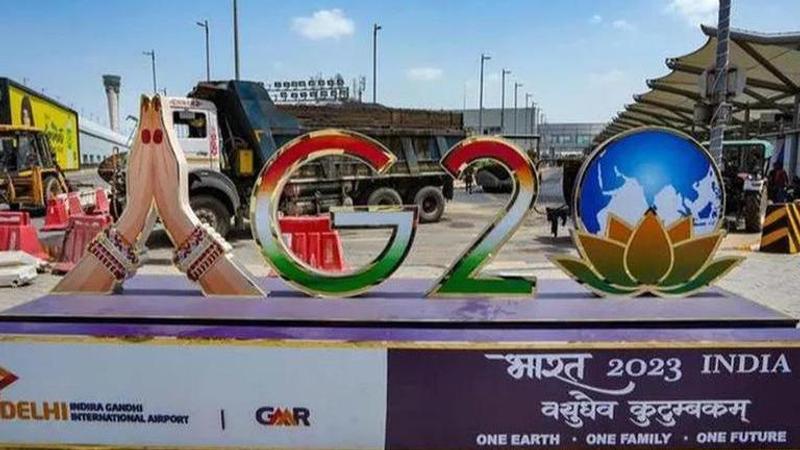Published 12:35 IST, September 3rd 2023
G20 Presidency enhancing India's trade relations with member nations: Experts
Experts said that presiding over the multilateral forum allows India to showcase its strengths and achievements.

Experts believe that India's G20 presidency is facilitating the enhancement of trade relations with member nations and offering opportunities to attract investments in sectors like infrastructure.
With the G20 representing approximately 85 per cent of global GDP, 75 per cent of global trade, and two-thirds of the world's population, it plays a crucial role in shaping future global economic growth and prosperity. Experts assert that presiding over this multilateral forum allows India to showcase its strengths and achievements, attract investments, and deepen trade relations with these major economies.
India's strengths
India's strengths, such as fast-tracking trade negotiations for free trade agreements, improved ease of doing business, modern infrastructure development, a skilled workforce, and a growing population with increasing income levels, position it favourably to enhance trade relationships with G20 member countries.
The G20 consists of 43 members, including 19 individual countries and the European Union. Trade experts recommend expediting ongoing negotiations for free trade agreements with countries like the UK and EU, which would provide India with improved market access and investment opportunities.
However, experts caution against using trade platforms to achieve climate goals, as this could potentially hinder progress in both trade and climate discussions. For instance, the EU's implementation of a carbon border adjustment mechanism may impact exports from countries like India.
"In the first eight months of 2023, the EU introduced five regulations on climate change and trade. The G20 nations should ignore this elephant in the room and discuss it before individual countries rush to the WTO (World Trade Organisation (WTO). This may soon unravel world trade," think tank Global Trade Research Initiative (GTRI) Co-Founder Ajay Srivastava said.
Shardul S Shroff, Executive Chairman of Shardul Amarchand Mangaldas & Co, suggests that India should aim to become a global norm-setter for the digital economy within the G20, leveraging this position to boost IT and IT-enabled services exports.
Gaurav Dani, Founding Partner at INDUSLAW, points out that India's growing middle-income population and its status as a consumer base for goods and services will continue to attract global firms.
Rumki Majumdar, economist at Deloitte India, notes that many multinational companies are seeking alternate investment destinations and diversifying supply chains, and India's G20 Presidency presents an opportunity to attract such companies.
Deep Kapuria, Chairman of Hi-Tech Group, highlights India's improvements in infrastructure, ease of doing business, skilled labour force, and growing market with a substantial middle-class consumer base as key factors that make India an attractive destination for investment and imports.
Accelerated growth
Sharad Kumar Saraf, Chairman of Technocraft Industries and an exporter based in Mumbai, believes that India's trade with G20 countries will see accelerated growth due to the various events organised by India during its G20 Presidency.
"This helped in showcasing the country as a whole. The G20 Presidency has thrown up many opportunities in diverse sectors for India. It is now up to India to grab this opportunity. India should consider converting the G20 into an economic block, a shade lower than free trade, maybe with reduced customs duties among the group members," Saraf said.
Among G20 members, India ranks ninth in terms of total trade in goods and services in 2022, with the EU, China, and the USA holding the top three spots. India's leading export destinations within the G20 include the USA, EU, China, UK, Turkey, and Saudi Arabia.
The country's main import sources among G20 nations include China, the EU, Saudi Arabia, the USA, Russia, Australia, Korea, and Japan. Key exports from India to these member countries in 2022 included electronics and machinery, petroleum products, diamonds, organic chemicals, medicines, and automobile parts, while top imports included electronics, machinery, petroleum products, organic chemicals, diamonds, plastic raw materials, and iron and steel.
Regarding foreign direct investment (FDI), the US is the largest investor in India, followed by Japan, the UK, Germany, and France.
(With PTI Inputs)
Updated 12:35 IST, September 3rd 2023




